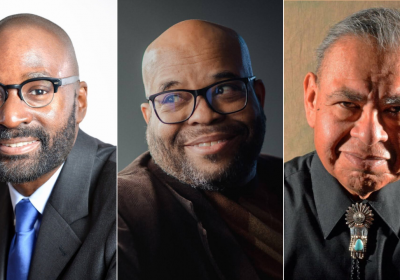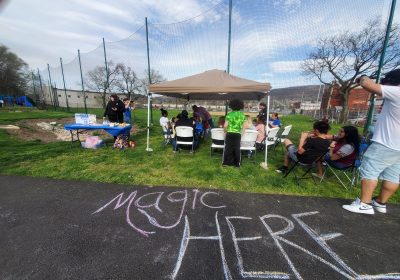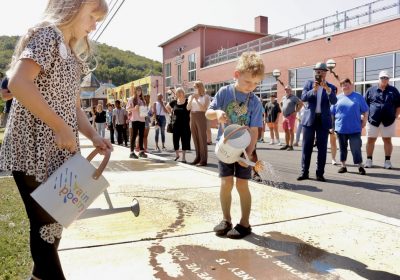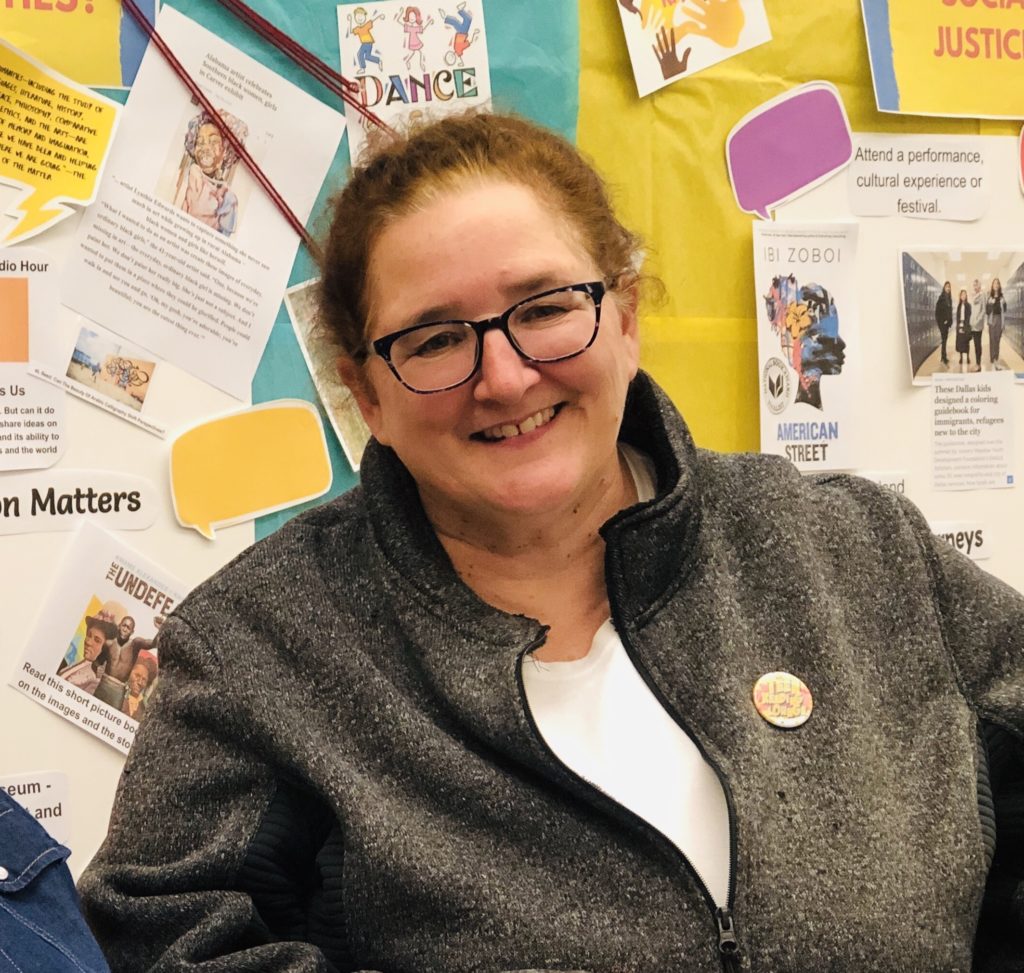
Jean Kosha’s remarkable life journey has taken her from working with the teachers of child refugees in Liberia and Sierra Leone while with the International Rescue Committee, all the way to serving youth at the Municipal Branch of the Upper Darby Township Library in Pennsylvania. She cares passionately about meeting the needs of young people and recently received support from the Pennsylvania Humanities Council (PHC) to bring Teen Reading Lounge (TRL) to the library in order to further deepen their engagement with the humanities and social justice issues. The PHC-created program combines immersive conversations around the humanities with real world civic engagement and cultural activities.
“It seemed to be the perfect fit,” said Kosha. “Teen Reading Lounge provides a space where we can talk about these issues that our teens face every day.”
The COVID-19 pandemic has led to the closure of schools and libraries, along with the cancellation of many youth development opportunities. The Upper Darby Township Library had just launched Teen Reading Lounge when the statewide shutdown orders went into effect. Rather than cancel the program, they decided to move it online and keep their teens engaged at a time when it seemed they needed it most.
We reached out to Kosha for a Q&A to check-in on how she’s navigating this new virtual terrain and to learn more about how the humanities are impacting the lives of young people in Upper Darby.
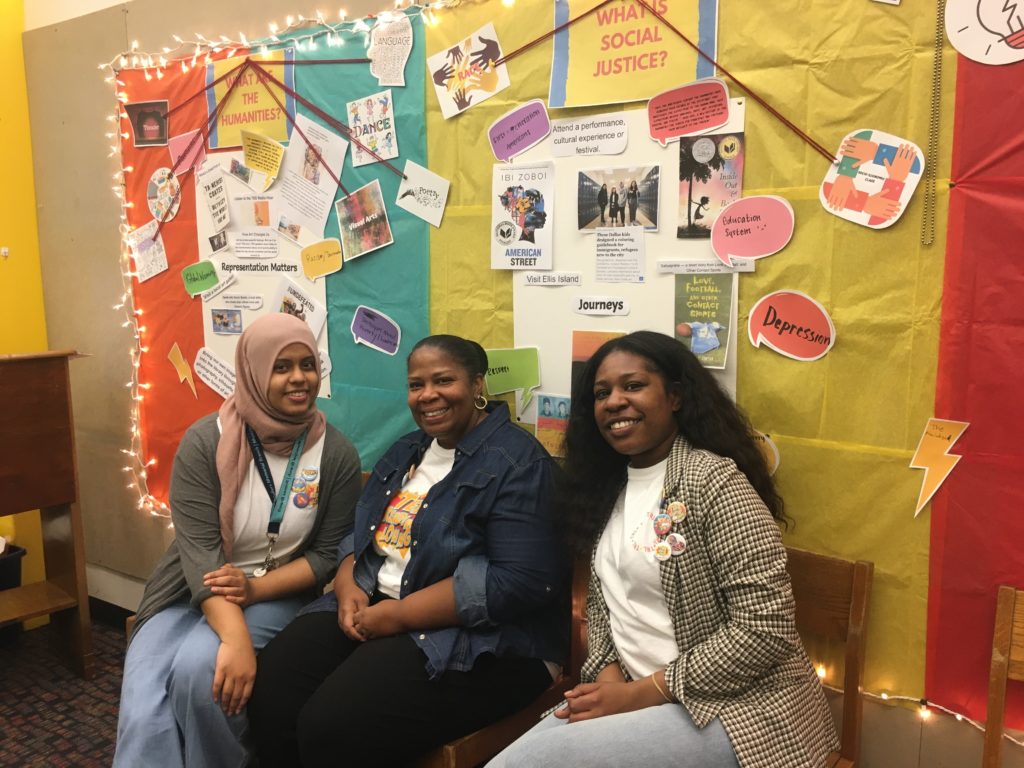
First, how are you doing with all this? You okay?
The short answer is yes! There’s a lot packed into that question. From a personal view, I feel like the virus is always hovering just out of view. I worry about my husband, who drives for Uber and Lyft, being exposed to it. I worry when I go out to shop. I wonder how long it will last, whether my son and daughter will be able to go to their college campuses in Fall, and when the library will be open.
I believe there’s always a silver lining to every cloud and I’ve found with the pandemic, being apart physically has allowed me to connect more frequently with my family and colleagues.
Tell us a little about why you moved to Upper Darby and how you became involved with Teen Reading Lounge.
My husband, who is Liberian, and I wanted to live in a diverse community where our children could grow up surrounded by people with different ethnicities, religious beliefs, and cultural practices. We wanted them to feel part of the world community. Since they are biracial, we didn’t want them to live in a place where they would feel isolated. In Upper Darby the community is so diverse and they have made friends with people from all corners of the world. It is a great place to live!
When I first moved here I worked at the library helping at the children’s desk. I gradually began doing programs for children and teens. I decided to start a Teen Advisory Board (TAB) because our young people were eager to create their own programs at the library.
Last spring I learned about Teen Reading Lounge and it seemed to be the perfect fit for our library. It was a chance to read and discuss great books with our teens, but it was so much more. We could focus on the humanities and most importantly incorporate social justice issues.
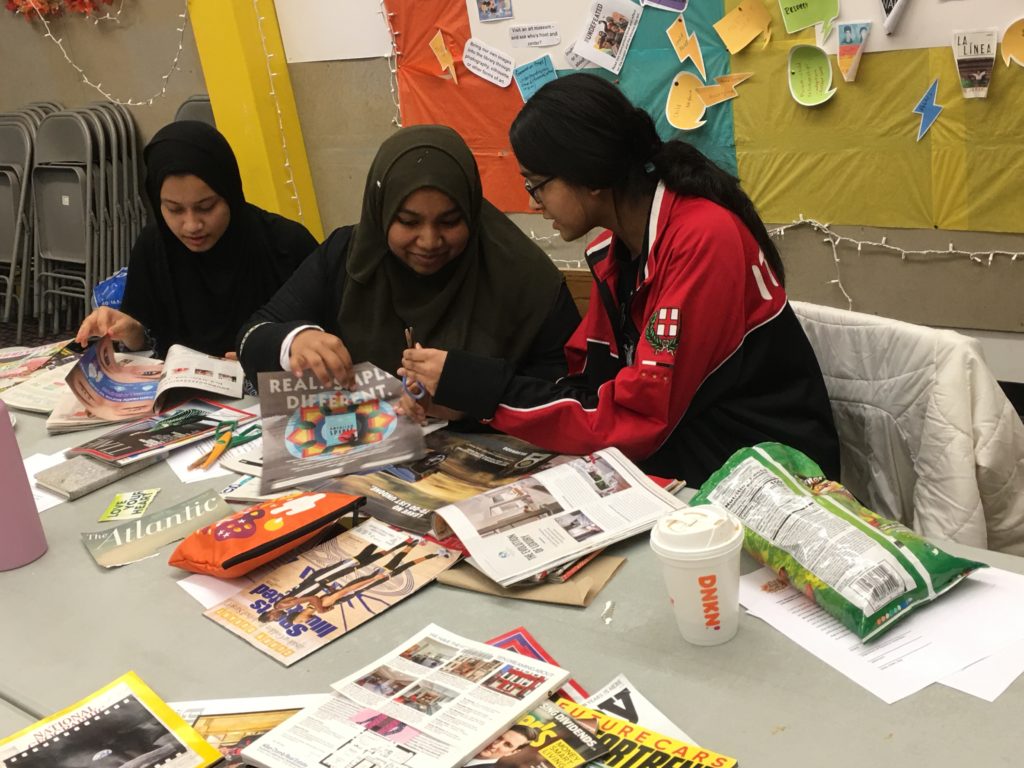
What was your Teen Reading Group working on before the shutdown?
The teens chose the theme of “Representation Matters” for our first cycle and we focused on the book Black Enough. It led to discussions about identity, privilege, and representation. Right before the pandemic hit, we started a project where the teens had their photos taken and cut out the silhouette. They were in the process of cutting out words and images that they considered part of their identity. The resulting work of art was going to be hung in the library in a display.
Unfortunately, we only got halfway through before we had to close the library.
How has the coronavirus situation impacted Teen Reading Lounge and the young people you serve?
Of course, initially, all of our efforts just stopped cold and we had to reassess how we could continue to meet with the teens and continue our program. The first time we met online it was a chance to check in with our youth community. A lot of our discussion was about how they are dealing with the pandemic, being stuck at home, trying to do school work, and listening to the sometimes frightening news reports. We spoke about self-care and some strategies they could use to deal with the stress that they may be facing.
Just before closing, we had received two more books, American Born Chinese and Free Lunch that are related to our “Representation Matters” theme. We had the funds through PHC’s grant to mail participants their copies. This past week we met online and played games through Zoom that we learned about at one of the PHC webinars I attended a few weeks ago. The teens loved it and we plan to play them again at our next meeting.
I’m happy to say, we are moving forward. We’ll be wrapping up this cycle soon and then in June we’ll start our second one. The teens have decided on the theme “Finding our place in this world.” I think we will have some very engaging discussions!
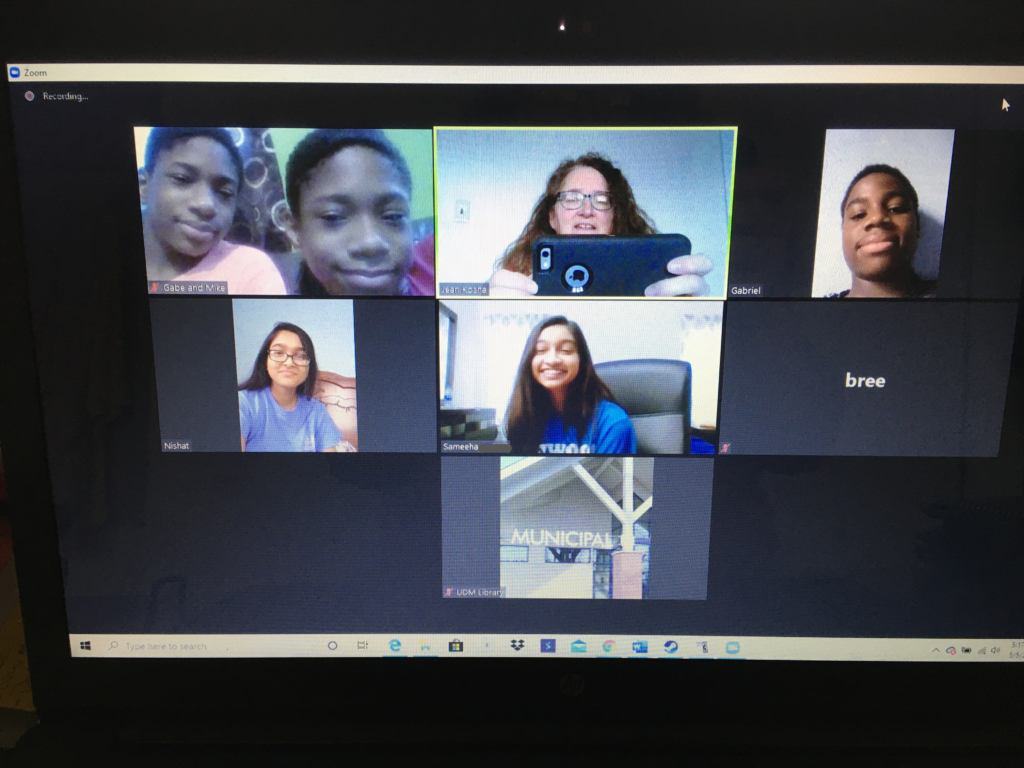
You managed to get a Zoom conference with the mayor of Upper Darby and your youth. Why was that important and how did your group respond?
Our recently elected mayor, Barbarann Keffer, was interested in meeting our library’s youth community as a part of her townhall tour that she planned for the spring. Fortunately, we were able to shift that meeting online. She met on Zoom with the participants of Teen Reading Lounge and our Teen Advisory Board and listened to their ideas about the needs of young people in Upper Darby. They were able to share their thoughts, including how important it was to have a safe place for teens to gather and hang out with friends.
One teen mentioned how Upper Darby was part of the Underground Railroad, but that this fact was not highlighted in the community. They felt it was important for the township to celebrate that. It was an amazing chance for the teens to voice their ideas and influence the direction of their own community. The mayor even invited them to nominate four young people to serve on the historical and recreation committees. How great is that? She wants to meet again in June to continue the conversation!
After the mayor left the Zoom meeting the teens continued to talk because they were so energized by the conversation. They thought it was one of the best meetings they’ve had. When I asked who would be interested in being on the committees everyone raised their hand!
What is working remotely teaching you about engaging with the library’s youth community?
The teens are still there! They still want to meet, engage and discuss. They want to be involved and they want to participate in building our community.
During one of the first online meetings I held with teens, one member who was particularly quiet in the “in person” meetings was much more vocal through the chat box online. Through text she shared her ideas and cracked jokes. Everyone in the group noticed and we all got to know more about her and her personality. While we may think of having to meet online as a hindrance, it can actually open doors for some teens in ways that we hadn’t realized.
Finally, why are the humanities important for young people during times of crisis?
Many teens are stressed about what is happening with the pandemic. They are concerned for themselves and their family. Having access to good literature and peer conversations, where they can immerse themselves in stories and ideas, is so important. Through the humanities we are able to constructively contribute to the shape of our communities and become leaders.
The humanities are essential to all of us.
One of the things I keep repeating to the teens is that they are living through an incredible time in history. I have encouraged them to keep a diary, record their thoughts, capture this moment. While it seems surreal now, in 50 years their grandkids will be asking them, “What was the 2020 pandemic like?” and they will have many incredible stories to tell.
![[color – dark bg] PA SHARP FINAL FILES DB 72dpi [color - dark bg] PA SHARP FINAL FILES DB 72dpi](https://pahumanities.org/uploads/files/elementor/thumbs/color-dark-bg-PA-SHARP-FINAL-FILES-DB-72dpi-phgl7aimtfdpzt2rscvl43ksfv3asbbls19lsvuacw.jpg)
